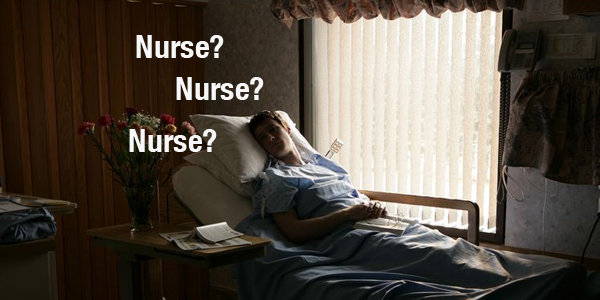It seems that the nursing shortage has been an issue since I was going to school. I remember at one point I received a one year full scholarship to go to nursing school my first year; then the 2nd year I received a letter that stated the President decided the nursing shortage was over and cut my full scholarship for the second year, forcing me to get student loans. That is enough to make you mad! But now as I practice as a nurse, I see that there is still a shortage of nurses in many fields (Moore, 2015). For instance in the hospital what I see is that they do not hire too many nurses because if they have too many on the unit and they don’t float them to another unit, they will send them home without pay because there is not sufficient work. When my son was in the Neonatal Intensive Care Unit, I had to walk past high risk antepartum, one day the lights were dim, and there was no one around. I got a bit concerned that something had happened. There was a sign that said, “unit closed.” When I inquired, someone stated that the unit was closed because the patient census was down. Of course two days later, it reopened.
I see that nurses are overworked because of the shortage as well. The shortage is only getting worse as the years go by because the baby boomers are soon going to be retiring and there are no new nurses to take their place (“Focus on Education,” 2010). There are also articles that speak about new nurses graduating, but their minimal level of education required will be the bachelor’s level plus all the clinical involved with that level. There are entrance exams to some nursing schools, making it difficult for the student to pass. Of course, education should be taken to the next level due to the more complex illnesses and family dynamics that we have today.
In order to not continuously have a shortage, employers need to realize that yes there is a shortage and hiring more staff to help the current nurses and not over tap them will be more productive in the long run. The medical cases are getting more complex these days for patients in the hospital, therefore making it important for nurses to have a higher level of education. The colleges have to start sending representatives to the high schools to start recruiting future nurses so that when they graduate, we can add more nurses to the profession. Recruiters need to present the pros and cons of being a nurse and look for candidates that will be a good fit for the nursing profession.
References
Moore, M. (2015). The nursing shortage and the doctor shortage are two very different things. Retrieved from http://www.washingtonpost.com/news/to-your-health/wp/2015/06/05/the-nursing-shortage-and-the-doctor-shortage-are-two-very-different-things/
The future of nursing: Focus on education. (2010). Retrieved from http://nursejournal.org/articles/the-future-of-nursing-infographic/
Rosie Moore, RN, DNP
Visit my Website to learn more www.rosiemoore27.com
Follow me on Facebook https://www.facebook.com/rosiesnursecorner/


